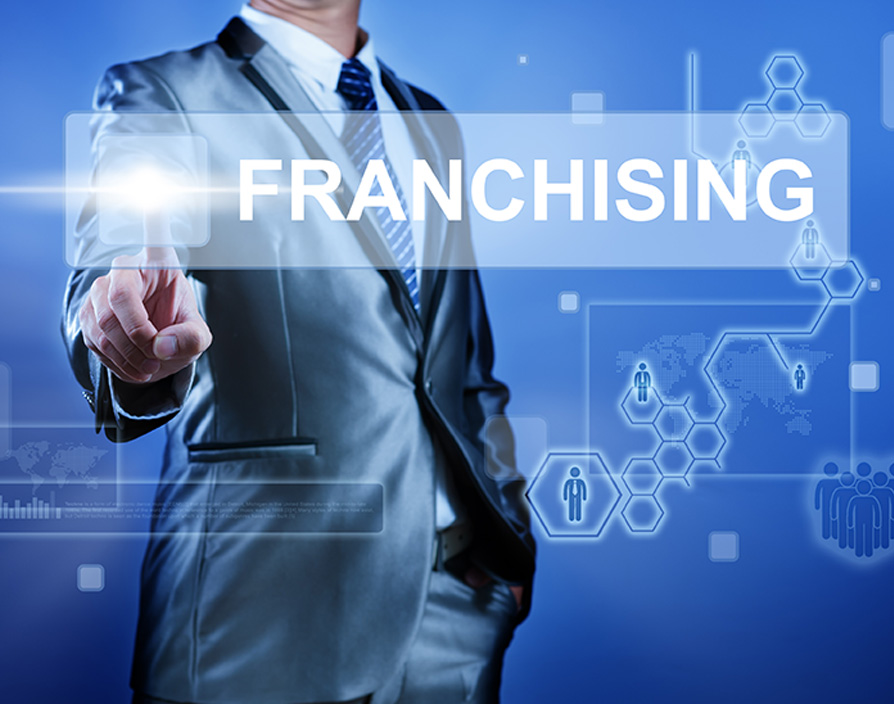What exactly is franchising? In short, it is the licensing of someone else’s proven business system. When applied, a franchisor licenses some or all of its processes, intellectual property, business model and brand to franchisees.
These franchisees pay fees to comply with obligations, as laid out in a franchise agreement. They purchase the rights to sell the franchisor’s branded products and services. And franchising continues to be one of the UK’s fastest growing business sectors.
My old boss Moshe Gerstenhaber, who launched Kall Kwik in the UK, described this method of doing business as follows: ‘A franchisee purchases a licence to duplicate an existing and successful system from a franchisor for a specified period.’
Once an agreement has been signed, it is the responsibility of the franchisor to continually nurture and develop the system, while providing on-going support to members of the network. The business system, therefore, is always ‘live and evolving’.
What does franchising mean to the franchisee?
Critically, if you become a franchisee, you will be in business for yourself but not by yourself. And I have lost count of the number of times I have made that remark!
Instead of having to solve every problem on their own, the franchisee will benefit by using the franchisor’s proven operating methods, corporate identity and trademarks.
These business partners will also be assisted with everything from marketing to recruitment to procurement. And this is the reason why most franchises succeed, while the majority of small independent businesses fail – not long after starting-up.
As such, franchising has become an increasingly attractive lifestyle and career option for thousands of people. In my own group of franchised businesses, we have an ex-greengrocer, airline steward, cattle rancher and footballer, as well as those with marketing, sales and business operations’ experience. It’s a diverse group of people.
Who are you investing in?
If you buy shares in a company, you invest in the skills of its management team. When you take up a franchise, you invest in yourself. And finding out about your own strengths and weaknesses can be much harder than discovering the trading record of a public company.
Franchising is not a get-rich-quickly scheme. That said, the rewards can be great but building a business takes determination, drive, dedication, energy and hard work.
More than that, it also takes passion
If you are a person motivated by achievement, and possess the courage to meet the tough challenges of running a business, then franchising could be perfect for you. You will also need pride in your performance.
But before you contemplate such a move, there is a lot of appraisal to be done – none more critical than a rigorous self-appraisal.
Commitment and desire
Becoming a franchisee must be a wholehearted commitment. You will have to change your whole lifestyle, so be realistic about yourself, your financial resources and your own skills and abilities.
Don’t be over-critical because no-one is perfect but be realistic about what you are good at. Discover what drives you and what your limitations are.
From experience, if you want to become a successful franchisee, you will need to have an enterprising personality. It helps if you are reasonably outgoing, have a default outlook that is positive, and enjoy problem solving. You also require considerable energy.
Ideally, I look out for self-starters, goal-orientated individuals and team players. I need people who can be entrusted with responsibility and have the mind-set to bring things to a successful conclusion.
Be honest with yourself
There is nothing wrong with being tired at the end of a hard day. But if you’re knackered by 5pm, then you may have a problem.
Interestingly, entrepreneurs generally do not make good franchisees. Franchising relies on teamwork and following a successful system. However, most ‘entrepreneurs’ tend to be somewhat ‘maverick’ and would like to ‘re-invent the wheel’.
So, if you don’t have the discipline to work to a system, or motivated to learn a proven method of doing business, then you are probably not the ideal individual for the franchising sector. But if you have the passion, energy and drive, and understand the benefits of team dynamics, then a franchised business is possibly for you.
































